Find out how your baby can become a 'Baby Scientist'
The Developmental Research Group, based in the Department of Psychology at the University of Otago, focusses on infant and child development. You will learn about recent research in this area, and find out how you and your baby can help us learn more.
- What's involved in being a 'baby scientist'?
- Register Online to volunteer you and your child for our developmental research programme.
- Complete the Sleep, Education and Learning in our Neighbourhood (SEALION) survey.
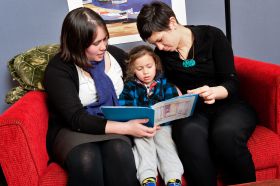
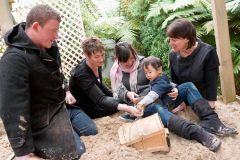
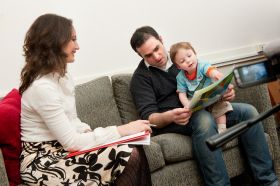
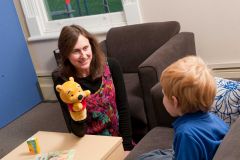
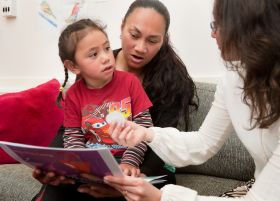
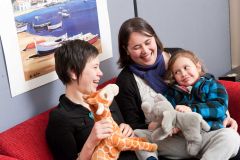
What we've discovered with the help of 'Baby Scientists'
Taken together, our recent research has had a major impact on current theories of memory development, and perhaps more importantly, is leading to changes in the way in which children are interviewed in applied settings. In addition, as our own children have grown up, our research interests have become more diverse. Our findings have been published in a number of academic journals and books and have been presented at conferences in New Zealand, Canada, the United States, and Europe. None of the work we conducted would have been accomplished without the time, patience, and enthusiasm of hundreds of infants, children, adolescents, and parents. In several new exciting lines of research, we have begun examining applied issues affecting adolescents, young adults, and their families.
Once again, we would like to thank everyone for helping us to understand these fascinating areas of human development across the lifespan.
Remembering by Association
Something that we have all experienced is that when we retrieve one memory, often other memories that share similar features also come to mind. For example, recalling one nerve-racking experience can cue the retrieval of other nerve-racking experiences that occurred years before, and after, the event that you were initially trying to remember.
Babies have an innate “moral compass”… or is it something else?
In 2007, a landmark study was published by a group of researchers at Yale University in which they argued that infants as young as 6-months old possess an innate moral compass that allows them to evaluate individuals as good or bad. But, when our team at the Early Learning Project took a closer look at the Yale study, we began to wonder whether the infants' preference for the good guy was really driven by a “moral compass.”
“Do you remember this?” Young children's ability to use verbal reminders
As adults, we have an incredible capacity to remember events that happened many, many years ago. How and when do we develop this amazing ability? Even though we all have memories from our childhood, most of us have difficulty remembering experiences that took place before we were
3- or 4-years old. What happens during early childhood that allows us to begin to keep our memories forever?
Sometimes it's better to wait!
Delay of gratification in 3- and 4-year-old children
Delay of gratification is the ability to forgo a small, immediate reward for a larger, future reward. For example, as adults, we might pass up the opportunity to go out to dinner because we are saving money for an overseas holiday. As parents, we spend considerable time teaching our young children to delay gratification—we teach them to wait, take turns, etc. Interestingly, researchers have shown that preschoolers' ability to exhibit delay-of-gratification predicts better academic performance and the number of friends they have later in life.
Is colour worth a thousand words?
When children draw in clinical contexts, clinicians sometimes rely on children's colour use to draw conclusions about their emotional reaction to the subject of the drawing. In our study, we examined whether children do actually use colour to portray emotion in their drawings.
Picture this: What do children's drawings tell us about their intelligence?
Children's drawings have captivated the interest of psychologists for over a century and many have argued that these early depictions can tell us something about their intelligence or emotional wellbeing. But are drawings really a good predictor of IQ?
Drawing about emotional experiences
Some of our research has shown that we should not use what children draw to predict their intellectual ability or psychological functioning. But can we use drawing as a tool to help children talk about their experiences?
“I saw an invisible octopus”: The accuracy of children's reports during interviews that involve drawing
There are times when it is important for adults to interview children about their experiences. For example, adults need to talk to children in legal settings, if the child is a victim of a crime, or has witnessed a crime. In these cases, the information that children provide needs to be accurate. In the Early Learning Project lab, we have shown that one interview technique that helps children to talk about their experiences, without affecting accuracy, is drawing.
Adolescent risk-taking
Adolescence is a period of our lives that is typically characterised by an increase in behaviours such as drinking, smoking, drug taking, dangerous driving, and unprotected sex. These risk-taking behaviours can lead to serious psychological and physical consequences. Laboratory-based analogues of risk-taking behaviour provide an opportunity to assess risk-taking in a controlled context.
Conflict in action: Assessing parent-child conflict in the laboratory
Most families with children experience a varying degree of parent-child conflict. Although some conflict is fine, frequent, intense, negative interactions between parents and children can play a significant role in numerous child and adolescent disorders.
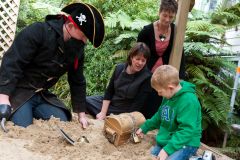
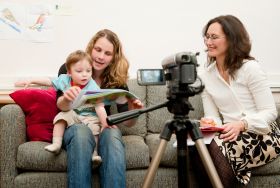
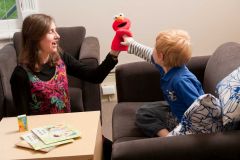
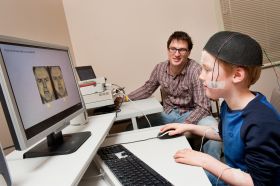
If you have any queries, please feel free to contact us.